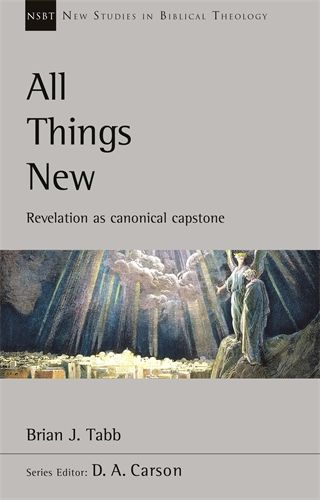
For many readers of the Bible, the book of Revelation is a riddle that fascinates and frustrates. Scholars and teachers have proposed different keys to its interpretation, including the ‘futurist’ and historical-critical approaches. However, none of these adequately demonstrates the continuing, vital relevance of the Apocalypse to the contemporary church.
Brian Tabb stresses the importance of the canonical context of the book of Revelation and argues that it presents itself as the climax of biblical prophecy. He shows how various Old Testament prophecies and patterns find their consummation in the present and future reign of Jesus Christ, who decisively defeats his foes, saves his people and restores all things.
Tabb considers key biblical-theological themes: the triune God; Christ’s followers and foes; God’s plan for salvation, judgment and restoration; and God’s word. He also explores how the book’s symbolic visions shape believers’ worldviews in accordance with what is true, good and beautiful according to God’s revealed standards. These visions motivate them to live obediently and counter-culturally in the world as faithful witnesses to Jesus.
Brian Tabb stresses the importance of the canonical context of the book of Revelation and argues that it presents itself as the climax of biblical prophecy. He shows how various Old Testament prophecies and patterns find their consummation in the present and future reign of Jesus Christ, who decisively defeats his foes, saves his people and restores all things.
Tabb considers key biblical-theological themes: the triune God; Christ’s followers and foes; God’s plan for salvation, judgment and restoration; and God’s word. He also explores how the book’s symbolic visions shape believers’ worldviews in accordance with what is true, good and beautiful according to God’s revealed standards. These visions motivate them to live obediently and counter-culturally in the world as faithful witnesses to Jesus.



